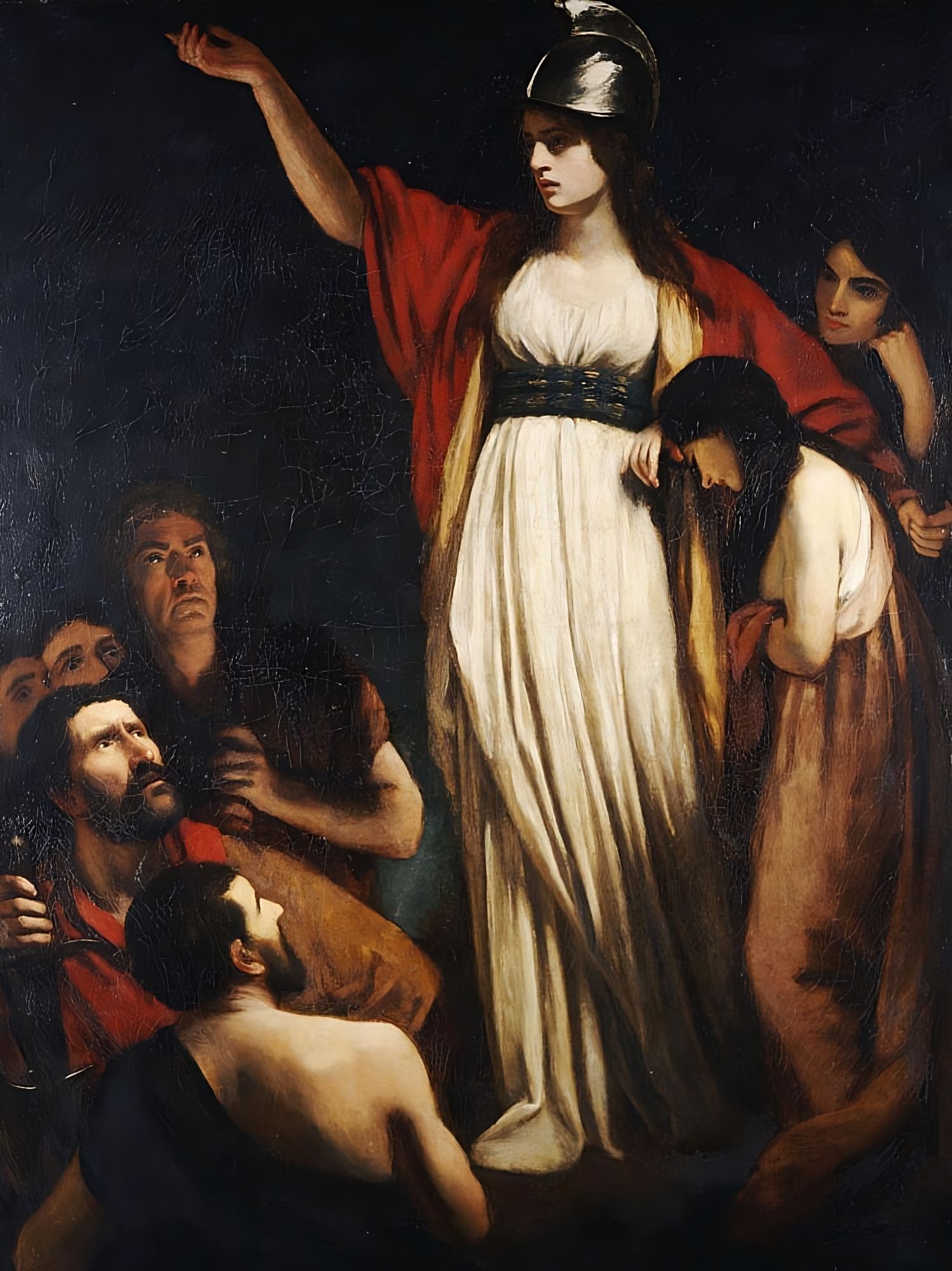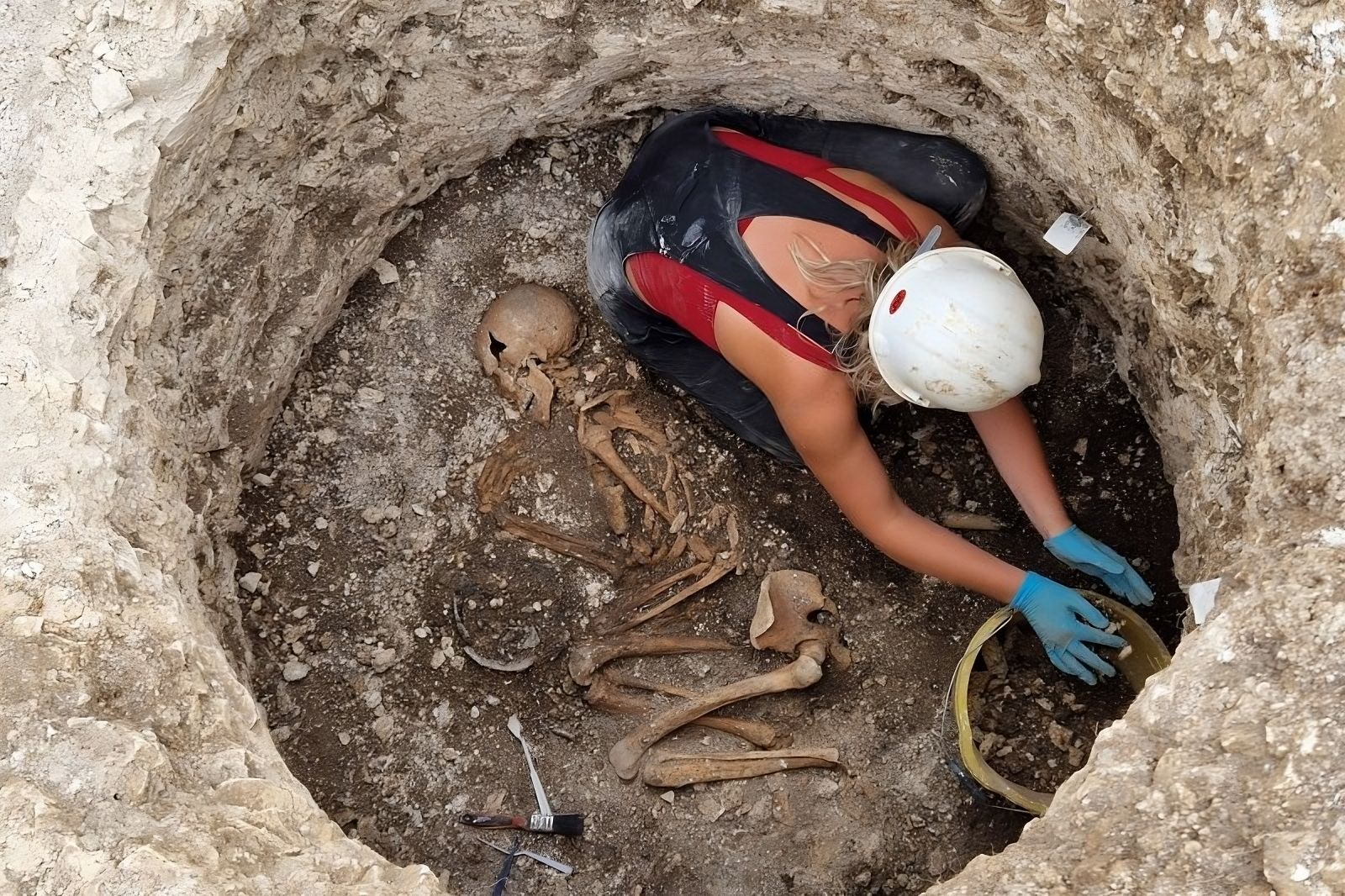Follow us on Google News (click on ☆)
This discovery, resulting from DNA analysis of burials in Dorset, revolutionizes our understanding of the social structures of the time. Women inherited land and passed on their lineage, while men integrated into their communities. A matrilocal organization suggesting significant female power, long before the arrival of the Romans.

Boudicca haranguing the Britons by John Opie
A unique matrilocal society in Europe
The study, published in Nature, is based on the genetic analysis of 57 individuals buried in Dorset, belonging to the Celtic tribe of the Durotriges. The results show that two-thirds of the individuals descended from a single maternal lineage, while 80% of unrelated men were likely husbands who came from elsewhere.
This matrilocal system, where men joined their wives' communities after marriage, is a first in protohistoric Europe. Land and property were probably passed down through women, giving them a major social and political role.
Consistent archaeological and genetic evidence
Archaeological excavations confirm these findings. Iron Age female burials are often the most richly adorned, a sign of high status. Moreover, Roman historical accounts describe powerful Celtic women, such as Boudicca, a warrior queen who led revolts against the invaders.
Analysis of mitochondrial DNA, passed exclusively through women, reveals low genetic diversity in Celtic cemeteries. This indicates a strong predominance of maternal lineages, reinforcing the idea of a society structured around women.

Image Bournemouth University
An egalitarian social model before the arrival of the Romans
The researchers emphasize that this social organization contrasted sharply with the Roman patriarchal model. Celtic women could inherit, manage land, and even lead armies, as evidenced by the accounts of Boudicca.
However, the study's authors clarify that this matrilocality does not mean absolute matriarchy. Men could also hold positions of authority, but women held significant social and economic power, making this society more egalitarian than that of the Romans.
Rewriting history through genetics
This genetic study offers new insights into Iron Age societies, often described through the lens of Roman conquerors. Genes tell a different story, where women played a central role in the transmission of property and group identities.
These discoveries remind us that history is not only written by the victors but also by the traces left in our DNA. They open new perspectives on the role of women in ancient societies, long underestimated.
To go further: What is a matrilocal society?
A matrilocal society is a social system where, after marriage, couples settle in the woman's original community. Unlike patrilocal societies, where the woman joins her husband's family, this model places women at the center of family and community structure.
In this type of society, women often inherit land and property, passing on their lineage through generations. Men, on the other hand, leave their families to integrate into their wives' families. This system fosters strong social cohesion around female lineages.
Recent archaeological and genetic discoveries in Britain show that this model was widespread in the Iron Age. Women played a key role in the transmission of property and group identities, contrasting with the dominant patriarchal societies elsewhere in Europe.
Although matrilocality does not necessarily mean matriarchy, it suggests a balance of power between the sexes. Women held significant social and economic influence, while sometimes sharing political authority with men.